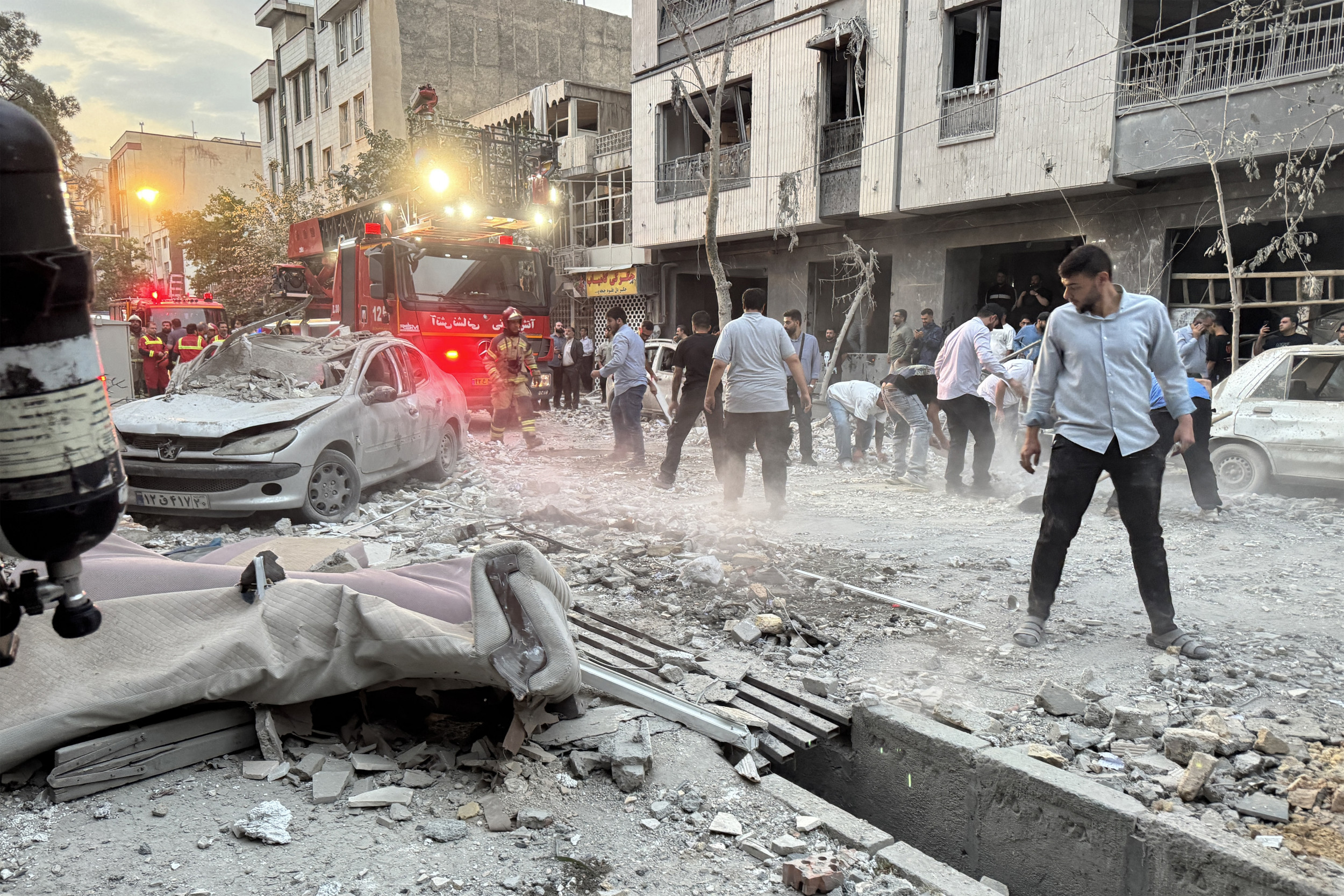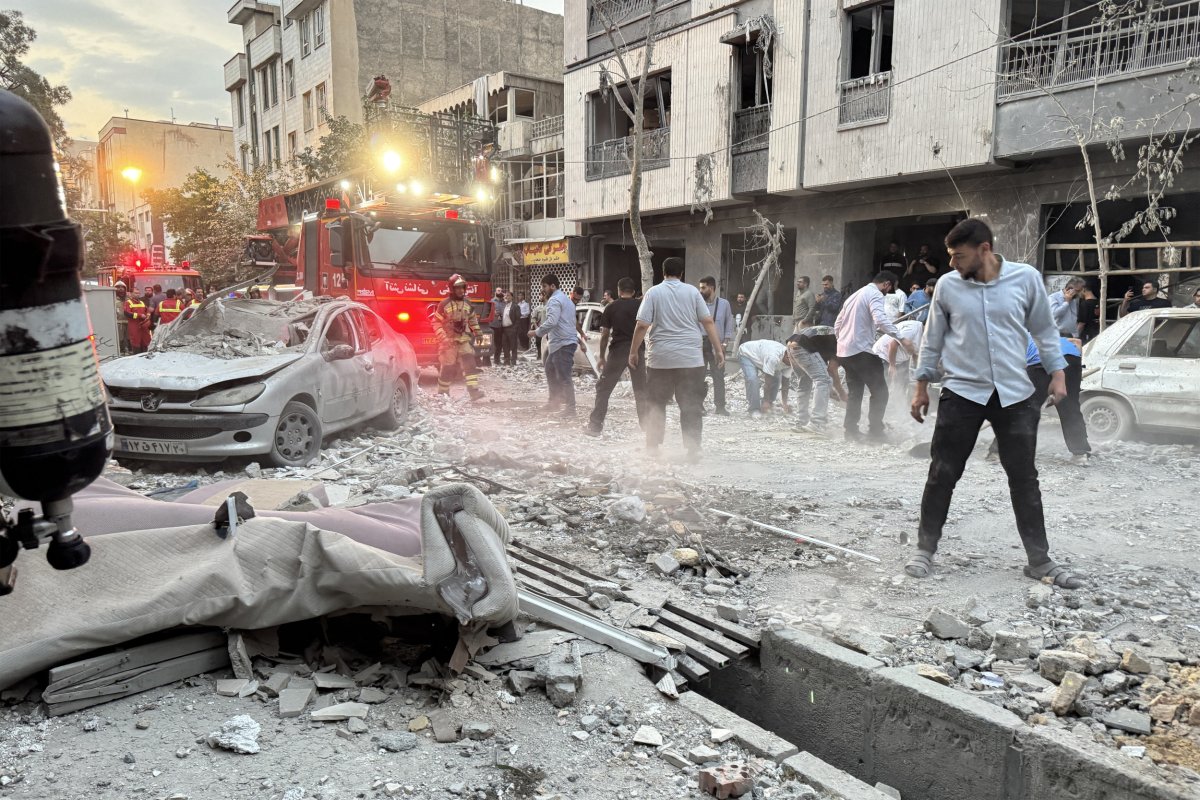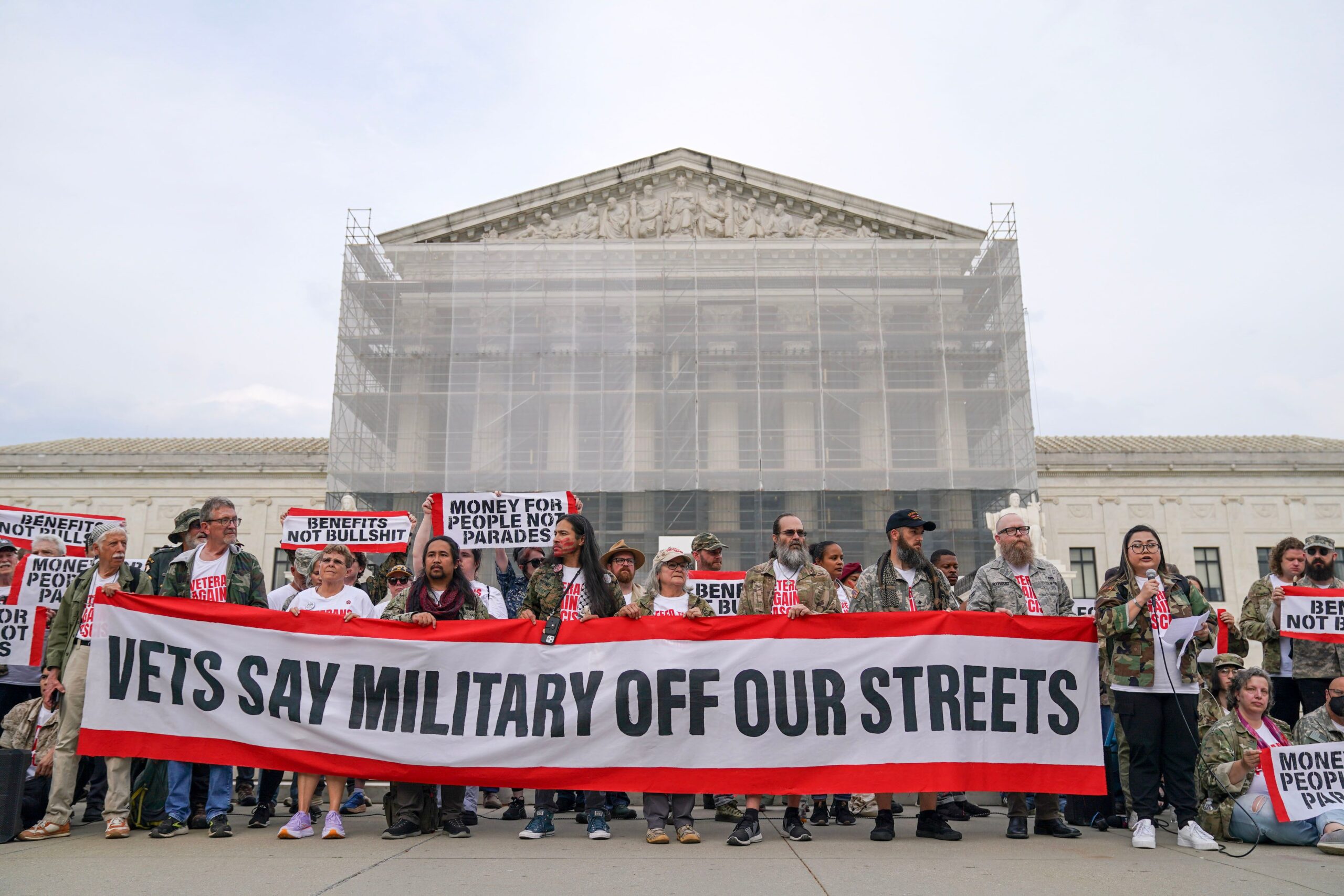
In the early morning hours of June 13, the government of Israeli Prime Minister Benjamin Netanyahu launched Operation Rising Lion—a sustained campaign of airstrikes targeting Iran’s nuclear program. That effort is still ongoing; Israeli officials have indicated that the strikes will come in multiple waves, over multiple days, as the country works to erode Iran’s extensive nuclear enterprise and hobble any potential regime retaliation.
The current campaign is dramatic, but it can hardly be said to be a surprise. Israeli officials warned for years that a nuclearizing Iran was an existential threat to the Jewish state, and might require direct military action to mitigate. So, too, had Iran-watchers tracking the advancing state of the Islamic Republic’s nuclear effort. (My first book on Iran, Tehran Rising, which dealt extensively with the probability of an Israeli strike on Iran’s nuclear program, was published two decades ago, in the summer of 2005.)

MEGHDAD MADADI/TASNIM NEWS/AFP via Getty Images
Nevertheless, the timing of Israel’s strike was unexpected, coming amid efforts by the Trump administration to negotiate a more durable deal with the Iranian regime over its nuclear program. Conventional assumptions held that Israel will refrain from any action until those negotiations either failed altogether or concluded in unsatisfactory fashion—and that, if a deal with the Islamic Republic was struck, no Israeli military action would be forthcoming at all.
So what happened, precisely? While additional details will undoubtedly be disclosed in the coming days, we already know a substantial amount about what transpired, and why.
First, Israel’s decision to strike was based on accumulated intelligence information that Iran had accelerated its efforts to develop a nuclear device in recent months, and as a result was now approaching the “point of no return” in terms of its ability to both enrich and to weaponize uranium.
Second, Israel’s large-scale campaign—entailing the use of some 200 fighter aircraft—involved strikes on key nuclear sites, including the Natanz uranium enrichment facility, a research facility in Tabriz, and reactors in both Arak and Khondab. It also hit several defense-industrial nodes, including in Kermanshah and Isfahan.
Additionally, Israel targeted a number of key officials in the Iranian regime’s military chain of command. It eliminated three of the country’s top generals: Islamic Revolutionary Guard Corps (IRGC) Commander Major General Hossein Salami, Iranian Military Staff Chief Major General Mohammad Bagheri, and Gholam Ali Rashid, the head of Khatam Al-Anbiya, the IRGC’s sprawling construction conglomerate. It likewise killed Ali Shamkhani, a close aide to Supreme Leader Ali Khamenei (and a former Iranian defense minister). It simultaneously struck a meeting of senior leaders of the Iranian air force in Tehran. All this appears to have had a dual purpose: to eliminate military leaders with a connection to the Iranian nuclear program (which the IRGC has custody over), and to disrupt and complicate planning for any Iranian retaliatory response.
Tellingly, however, Israel’s campaign did not include strikes on regime leadership. That helped clarify something many had wondered: whether Israel, if it did attack Iran, would use the opportunity to decapitate the Iranian elite, setting up the potential for “regime change” from within. That remains a distinct possibility, and one that will likely be dictated by the nature of Iran’s inevitable response. For the moment, however, Israel has stopped short of taking aim at the country’s clerical leadership, focusing instead on the country’s nuclear program and select military targets.
Meanwhile, Israel’s strike has inevitably raised questions about its impact on the broader “special relationship” between Washington and Jerusalem, and for good reason. The Trump administration had made clear in recent days it wanted Israel to hold off on military action while it negotiated with the Islamic Republic, leading some to conclude that Israel’s action came in defiance of the White House. The reality, however, is considerably more complex.
Israeli officials have long understood that military action against Iran is impossible if they have a “red light” from the White House. However, in recent days, the stalling nature of U.S. negotiations with Iran, and growing frustration on the part of President Donald Trump with Iranian intransigence, created an opening for Israeli action, and Netanyahu’s government took it.
It did so independently. President Trump has made abundantly clear that the United States is not interested in spearheading a military campaign against Iran, but would support an Israeli strike under certain conditions. Israel’s government took pains to make sure those parameters were met—most clearly through its choice of targets which, though extensive, were limited to military and nuclear installations and personnel. That decision has kept Israel within the confines of U.S. policy, and left the door open for U.S.-Iranian negotiations.
In fact, Israel’s strike has improved the Trump administration’s negotiating position considerably, demonstrating to Tehran the catastrophic consequences of unsuccessful diplomacy. And the White House is exploiting this opening; President Trump has already publicly called for the Iranian regime to continue talks and make meaningful concessions, lest it face even more severe action. In this way, Israel has allowed America to play the role of “good cop,” short-circuited Iran’s time-tested negotiating strategy of delay and obfuscation, and improved the chances of some sort of meaningful arrangement with the ayatollahs to contain their stubborn nuclear effort.
Coming days will bring additional actions by Israel. It almost certainly will see an Iranian response of some sort. But Iran’s clerical leadership now faces a fateful choice it has avoided for far too long: regime survival, or nuclear weapons. The unspoken message of Israel’s military campaign is that Tehran can’t have both.
Ilan Berman is senior vice president of the American Foreign Policy Council in Washington, D.C.
The views expressed in this article are the writer’s own.





